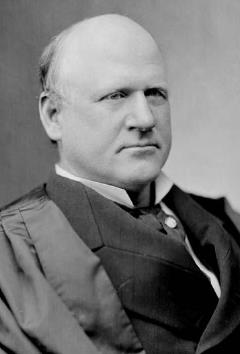The Waite Court (1874–88)Criminal Justice |
In what decision did the Waite Court rule that state courts do not have to proceed with a grand jury indictment in murder cases? |
The Fifth Amendment of the Bill of Rights provides that “No person shall be held to answer for a capital, or otherwise infamous crime, unless on presentment or indictment of a Grand Jury.” However, the California Constitution of 1879 provided that “Offenses heretofore required to be prosecuted by indictment, shall be prosecuted by information, after examination and commitment by a magistrate.”
Defendant Joseph Hurtado challenged his conviction in the California courts for the murder of Jose Antonio Stuardo. Hurtado contended his conviction was invalid because he did not have the benefit of a grand jury to review the prosecutor’s contentions. Instead, the prosecutor proceeded with an information to a magistrate.
Hurtado contended that the Fifth Amendment right to a grand jury in death-penalty cases was extended to the states via the Fourteenth Amendment Due Process Clause. The Waite Court rejected this contention by a 8–1 vote in Hurtado v. California (1884). The majority, in an opinion written by Justice Stanley Matthews, believed that Hurtado’s due-process rights were not violated because the procecutor proceeded by information instead of a grand jury indictment.
John Marshall Harlan was the Court’s lone dissenter, believing that the Fourteenth Amendment incorporated the Fifth Amendment’s grand jury indictment requirement to the states.

